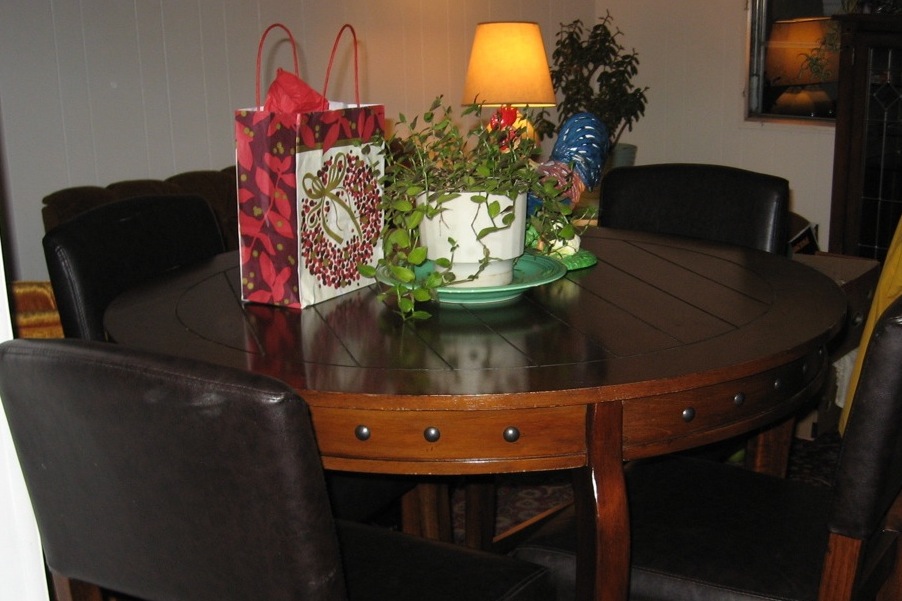Thought you would be interested in the scorecard of universities teaching the new docs on the block...
show details 5:17 AM (6 hours ago) |
MAJORITY OF U.S. MEDICAL SCHOOLS HAVE STRONG PHARMACEUTICAL CONFLICT-OF-INTEREST POLICIES; MEDICAL STUDENT SURVEY FINDS
Reston, Va. and Washington, D.C. — The majority of U.S. medical schools have implemented strong conflict-of-interest policies this year, according to the 2010 American Medical Student Association (AMSA) PharmFree Scorecard, released today. The Scorecard, developed by AMSA and the Pew Prescription Project, finds that 79 of 152 medical schools (52%) now receive a grade of A or B for their policies governing pharmaceutical industry interaction with medical school faculty and students, compared with 45 last year.
The AMSA PharmFree Scorecard (www.amsascorecard.org), now in its fourth year, offers a comprehensive national overview, as well as an in-depth, school-by-school analysis in 11 areas, including gifts and meals from industry to doctors, paid promotional speaking for industry, acceptance of free drug samples, interaction with sales representatives and industry-funded education.
Of the 152 U.S. medical schools, 19 receive As (13%), 60 Bs (39%), 24 Cs (16%), 18 Ds (12%) and 26 Fs (17%). Schools that declined to submit policies and schools that did not respond to repeated requests for policies received an automatic ‘F’ (12 schools). Five respondents received a grade of “In Process” because their policies are currently under review or revision.
Highlights of the survey include:
• The University of South Dakota, Des Moines College of Osteopathic Medicine and Tufts University School of Medicine have increased from ‘D’ policies to ‘A’ policies this year. Tufts is now the highest scoring medical school in Massachusetts.
• The University of New England College of Osteopathic Medicine, increased its grade from a ‘F’ to a ‘C’.
• The University of Central Florida College of Medicine, which only opened its doors in 2009, received a ‘B’.
• There are only two medical schools that received a perfect score for limiting access of sales representatives – the University of South Dakota Sanford School of Medicine and Florida State University College of Medicine.
• Nearly one-third of medical schools now teach medical students to understand institutional conflict of interest policies, to recognize how industry promotion and marketing can influence clinical judgment and to consider the ethics around conflict of interest.
The other top-ranked, (‘A’) schools in the 2010 report include: Mount Sinai School of Medicine (New York), University of Pittsburgh Medical Center, University of California Los Angeles David Geffen School of Medicine, University of Pennsylvania School of Medicine, University of California Davis School of Medicine, University of California San Francisco School of Medicine, University of Texas Medical Branch at Galveston, Johns Hopkins School of Medicine, University of Maryland School of Medicine, Mayo Medical School, University of Iowa Carver College of Medicine, Emory University School of Medicine, University of Miami Miller School of Medicine, Georgetown University School of Medicine, Stanford University School of Medicine, and the University of Southern California Keck School of Medicine.
“As conflict-of-interest policies become part of mainstream medical education, this is an exciting time for future physicians and the health care industry as a whole,” says John Brockman, AMSA national president and fourth year medical student at Case Western Reserve University School of Medicine. “With all of the compelling data about how marketing influences even the best-intentioned physicians, it is gratifying to see that medical schools are taking the necessary steps toward practicing evidence-based medicine, which translates into better patient care.” Case Western increased its grade this year from a ‘D’ to a ‘B’.
AMSA developed the rigorous scorecard methodology with the Pew Prescription Project, which works to promote consumer safety through reforms in the approval, manufacture and marketing of prescription drugs.
“Conflict of interest policies ensure appropriate relationships between caregivers and drug and medical device companies,” said Allan Coukell, director of medical safety for the Pew Health Group, which supports AMSA’s work. “The 2010 scorecard shows that medical schools are moving towards stronger conflict-of-interest standards and that the Scorecard is an increasingly accepted assessment tool.”
Virtual News Conference
On Wednesday, December 15th at 11 a.m. EST/8 a.m. PST, AMSA will host a virtual news conference to review the results of the 2010 AMSA PharmFree Scorecard:
Call-In Number:
(661) 673-8600
Participant Passcode:
914227#
For more information or to schedule an interview with AMSA, Pew or a local medical student, please contact: press(at)amsascorecard(dot)
About the American Medical Student Association
Celebrating its 60th Anniversary, AMSA is the oldest and largest independent association of physicians-in-training in the United States. Founded in 1950, AMSA is a student-governed, non-profit organization committed to representing the concerns of physicians-in-training. To learn more about AMSA, our strategic priorities, or joining the organization, please visit us online atwww.amsa.org/.
AMSA’s PharmFree Campaign, which began in 2001, guides medical students in organizing to advocate for evidence-based rather than marketing-based prescribing practices, the removal of conflicts of interest and global access to essential medicines. AMSA provides toolkits, talks and training institutes to help medical students advance these goals. For more information, please visitwww.pharmfree.org.
About the Pew Health Group
The Pew Health Group is the health and consumer-product safety arm of The Pew Charitable Trusts, a nonprofit organization that applies a rigorous, analytical approach to improve public policy, inform the public and stimulate civic life. For more information, please visitwww.prescriptionproject.
# # #
Media Contact:
Kim Cunningham
American Medical Student Association
Phone: (781) 223-4042
Email: pr@amsa.org
**Happy Holidays
See the last few posts for a Cookie Exchange Party.
Also: FREE SHAKLEE MEMBERSHIP -A $19.95 Value FOR 15% off ALL Shaklee Products FROM NOW ON. OFFER GOOD through December for ordering $70 of product, MN Member Price.
$70 MN ORDER=FREE $19.95 MEMBERSHIP...
Questions? Contact us at leangreencafe@yahoo.com

